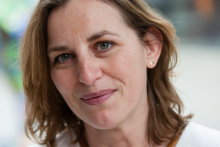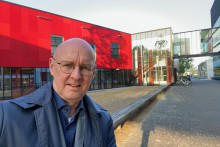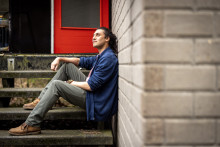Digital media is influencing nearly everything in our lives, including our ability and motivation to read. Yet, its exact effects are unclear. Could the right use of digital media motivate us to spend more time with books? How do children cope with online texts? Those are some of the questions that Eliane Segers wants to answer within her work at the University of Twente, where she now functions as a professor by special appointment.
Toddlers using digital media
Eliane Segers, who is also an associate professor at the Radboud University, began working at the UT a year ago and will present her oration tomorrow, 9th of March, 2017. Her endowed chair is funded by the Stichting Lezen (Dutch Reading Foundation), an organization closely related to her line of work.
‘My research at the UT will follow several parallel directions. The first one deals with younger children and home literacy, the way small children are exposed to letters and reading at home – by their parents reading books to them, for example,’ begins Prof. Segers. ‘However, the new digital media can expose children to letters very early. Already toddlers use tablets, but we don’t know how this influences their emergent literacy.’
Reading books and googling
Segers’ second line of work at the UT focuses on children at primary schools. ‘The reading comprehension they learn is linear. They learn how to read books; but when they are given a writing assignment, for instance, they go online and google, which is a very different reading experience. You have to know how to deal with hypertexts, what to click on and so on. At this point, we don’t know how children cope with that,’ explains Prof. Segers. ‘There is a misconception that it’s easy for kids to read online, but the strategies they use are not clear.’
Besides shining light on this issue, Prof. Segers will try to determine how much today’s children enjoy reading and how to motivate them to pick up books more often.
Reading instructions
In collaboration with the UT’s Go-Lab, Eliane Segers also studies technical aspects of reading and digital media. ‘Go-Lab involves an online laboratory, where children can do experiments to understand laws of physics and more. This online lab includes texts, but our hypothesis is that children don’t really read them and jump straight to the experiments,’ says Segers. ‘We therefore want to conduct an eye-tracking experiment to see if children read or do not read before doing the experiments, and how that influences their experimenting and learning from it. If they indeed don’t read and that has a negative impact, we want to motivate them to read by using gamification elements.’

Photo by: Jørgen Koopmanschap







